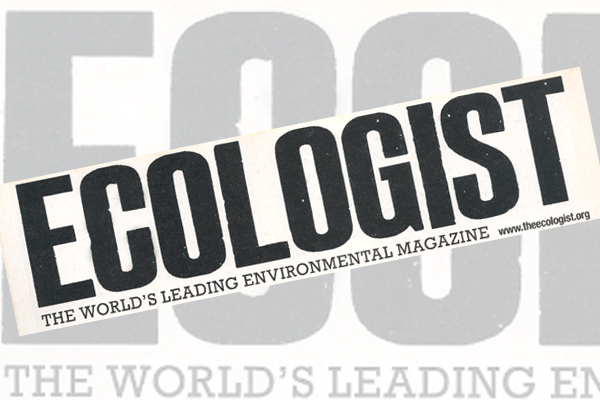Editorial: The Energy Crisis

In his letter to the founder of Alcoholic’s Anonymous, in 1961, the psychoanalyst Carl Jung noted that the addiction was, at a very deep level, a ‘spiritual thirst of our being for wholeness’. Instead of internalising the search, experiencing it for ourselves, however, the alcoholic looks to the spirit in the bottle to fill the void.
All of our addictions – to alcohol, drugs, food, oil, consumer goods, money, faster modes of transport, building a better anything through genetic engineering, religious fundamentalism and even the thrill of war – come down to this same desire: to fuel the spirit, to be in touch with the source, to be moved by the power of it out of our mundane selves and into a higher realm. To feel powerful.
Our search for energy is another addiction. We want more of it, and we want it to be abundant, limitless, renewable, but most of all cheap. As a metaphor for a culture on its last legs, the current energy crises – the profound lack of resources, personal and earthly, that we face when we dare to peer into the future – could not be more apt. If we are going to have a proper energy revolution, maybe it needs to begin on the inside (see page 34).
Energy has been at the root of everything the Ecologist has written about for the past 40 years. Not just the crude energy that we use to fuel society, but human energy as thought, as fuel, as an organising and motivating principle in our lives. All the complex arguments we make come down to one thing: how well, how positively, we use and manage this elusive, many-faceted and dwindling resource.
When you buy wholesale into the metaphor of the energy crisis, however, beware: you may be buying in to some parts of the story without focusing properly on others. For instance, placing more emphasis on the role of the consumer and focusing on the simple things we can all do to save energy can obscure the role of government and industry in the development of policies that limit high petroleum consumption, dependency on imports and polluting non-renewable fuels.
It’s not just the crude energy we use to fuel society, but human energy as thought, as fuel, as an organising and motivating principle in our lives.
Many of the groups highlighted in this month’s cover feature (page 14) campaign for more of the ‘energy’ burden to be put on government and industry, and less on citizens. This doesn’t mean citizens can abdicate responsibility, but before we all begin to suffer from ‘10 things we can do (or buy) to save the planet’ burnout, let’s step out of the addiction/denial cycle long enough to ensure that government and industry are held accountable for responding to the current crisis in a way that counts.
From this month, the Ecologist enters a new era. It relaunches as a completely updated and enhanced website – and I take my leave as Editor. Directing more energy into the worldwide web – as our director Zac Goldsmith explains on page 27 – will allow us to respond more quickly to a rapidly changing world. As he says: ‘The format will change, of course, but we won’t lose anything that has made the Ecologist vital and relevant. We will continue to provide the best analysis and the best investigations. We will continue to provoke, fearlessly, wherever that’s needed.’
As the Ecologist moves online, the loyalty and participation of our readers is, as always, greatly appreciated. We hope that you will continue to subscribe and make good use of the new website, which will eventually include our entire archive dating back to 1970, and which will bring you up-to-date news daily, and opinion from campaigners and thought leaders, as well as bringing you many of the same regular features you enjoyed in the magazine, including our in-depth investigations. We look forward to seeing you there.
- This article was first published in the July 2009 edition of the Ecologist.












